The Joy of Spreading Love, One Heart at a Time: Delilah and Gary Thomas
Radio host Delilah and author Gary Thomas are two gifted communicators who spread the joy of God’s love to others and show us different ways we can nourish our closest relationships. Every night on her show, Delilah hears stories of the heart from her listeners which she in turn shares with millions of other listeners around the world. Today we learn about the woman behind the microphone as Delilah tells us about her growing-up years and how she broke into broadcasting. Despite her broad reach, Delilah has discovered that the easiest way to change the world is by touching the lives of your own neighbors and friends, which she talks about in her new book, One Heart at a Time. Gary is a teaching pastor who often counsels couples before their wedding day, and this journey has led to his latest book, Preparing Your Heart for Marriage: Devotions for Engaged Couples. Today he shares insights for couples looking to begin their marriages with God at the center, and tells us about the surprising blessings of Gary’s own stage of marriage: empty nester.
Delilah: As my life has grown and evolved and matured, the way that I respond to listeners certainly has. Because when [my show] started in 1984, I wasn’t a Christian. I wasn’t clean and sober. I didn’t know anything about 12 steps or 12 traditions. I had one baby, but I didn’t know anything really about parenting. I didn’t—my son was very healthy, I had never raised a child with special needs.
As all these new experiences have happened to me personally, I’m able to share that—my experience, strength, and hope—with the multitude of people on the air.
The Joy of Spreading Love, One Heart at a Time: Delilah and Gary Thomas – Episode #135
Narrator: Welcome to the Jesus Calling Podcast. Today two gifted communicators share the joy of spreading love to others and show us different ways we can nourish our closest relationships: broadcaster Delilah and author Gary Thomas.
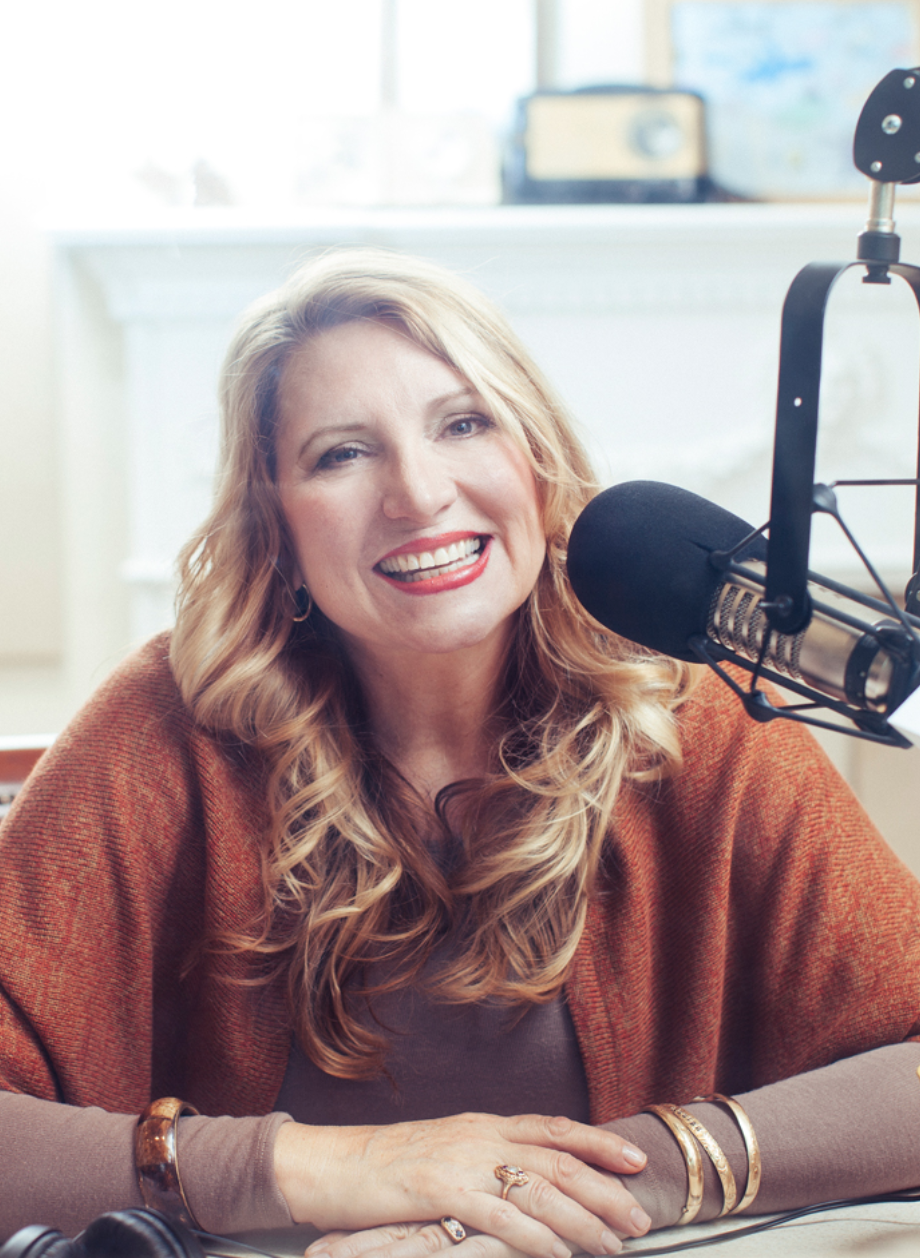 First up, we talk with syndicated radio host Delilah. Every night on her show, Delilah shares stories of the heart with millions of listeners around the world. We now learn about the woman behind the microphone as Delilah tells us about her growing-up years and how she broke into broadcasting. Despite her broad reach, Delilah has discovered that the easiest way to change the world is by touching the lives of your own neighbors and friends, which she talks about in her new book, One Heart at a Time.
First up, we talk with syndicated radio host Delilah. Every night on her show, Delilah shares stories of the heart with millions of listeners around the world. We now learn about the woman behind the microphone as Delilah tells us about her growing-up years and how she broke into broadcasting. Despite her broad reach, Delilah has discovered that the easiest way to change the world is by touching the lives of your own neighbors and friends, which she talks about in her new book, One Heart at a Time.
Delilah: My name is Delilah, and I am syndicated nighttime radio host. During the day I’m on in Seattle, Washington. In the rest of the country, I am on at night usually from 7:00 to midnight, sometimes from 8 until 1:00. And on my radio show, I play sappy love songs, I take requests and dedications. I share my stories from the heart. I’m also an author. I have a new book out, and I have a podcast called Conversations with the Delilah.
Discovering That Music Touches All of Us
I grew up on the Oregon coast. I am the second of four children, born to our parents, Dick and Wilma Lou. And I was destined to be a broadcaster from the time I was born in that I could not shut up.
My mom says I actually didn’t talk like to her or to my folks until I was 2 or 3, because my brother and I had this secret language and we understood each other. So Mom said, “You didn’t really have any need to talk to anyone else because you and your brother Matthew were so close.” But once I did start talking, I didn’t stop. So in school, I was always the kid in trouble with the teacher for talking way too much.
I was raised in a very musical family. My father belonged to a band. My mother sang around the house all day, every day. Music was a part of our lives. Both my siblings that are alive today—my brother Tim, my sister Deanna—both are musical. Our brother Matt was in a band. That’s where he met his wife, was in a group called The Southwesters, which was a jazz band.
So music has always been a part of our life, and I have always loved the music.
But I realized early in broadcasting—I was probably 15 or 16—how impactful music is because you remember the song you danced to it your junior prom. You remember the song that you heard when you got your first kiss. You remember the song that was your song with your sweetheart, your fiancé. You remember the song that was popular when your babies are born. Music touches us in a way that nothing else does.
“Music touches us in a way that nothing else does.” – Delilah
I think that music is the language of the angels. You read the Old Testament, the scriptures, the Psalms, the harps and the music that was played. And you know, when King David comforted Saul, it was with music that he was able to calm his spirit and comfort him and kind of keep the cray-cray away. And it does that for us today.
Finding Faith During a Dark Season
I wasn’t raised in a religious family, but we did attend church—just not as a family. My mom probably, because she was exhausted raising four kids, would send us to Vacation Bible School at every church in town all summer long.
I also had a best friend, a girlfriend named Sherry Powell. Her family was Catholic, and so she would take me to catechism with her after school on Wednesdays. And I very much enjoyed that. So although my parents didn’t belong to a church or subscribe to a religion, they certainly encouraged that and encouraged faith in all of us kids.
My relationship with God formally started when I was in my 20s. I went through a really sad period in my life where I lost my brother and his wife. I lost my husband. He walked out on me and moved in with his girlfriend. And then I lost my job at a radio station.
So I was at a pretty low point in life, and that was really the push to start me on my spiritual journey.
“I was hungering for truth, and what I found was Jesus.” – Delilah
You know, I don’t even remember who gave me my first copy of Jesus Calling, but it was early in my walk with God. And I loved it because it was simple. It was simple, and it was sweet, and it was a daily reminder of just how deeply God wants to connect with me.
Jesus Calling was so sweet because it was simple, and it’s just a daily reminder that we really don’t have to go look for God. He is right there in the seat next to you when you’re driving in your car, when you’re driving to work, when you’re at work, when you’re involved in negotiations.
I wanted to share one of my favorite passages from Jesus Calling, [February 15]:
Come to Me with all your weaknesses: physical, emotional, and spiritual. Rest in the comfort of My Presence, remembering that nothing is impossible with Me.
Pry your mind away from your problems so you can focus your attention on Me. Recall that I am able to do immeasurably more than all you ask or imagine. Instead of trying to direct Me to do this and that, seek to attune yourself to what I am already doing.
When anxiety attempts to wedge its way into your thoughts, remind yourself that I am your Shepherd. The bottom line is that I am taking care of you; therefore, you needn’t be afraid of anything. Rather than trying to maintain control over your life, abandon yourself to My will. Though this may feel frightening—even dangerous—the safest place to be is in My will.
And I forget that. I forget that and I want to take control, and I want to take power back, and I want to fight with people or argue with people to make my point. And then when I’m reminded that, Nope, whew. Just let the love of God cover you right now, and don’t call them, you know, “stupid heads.”
It’s been a gift to millions throughout the years.
Launching and Growing the Delilah Show
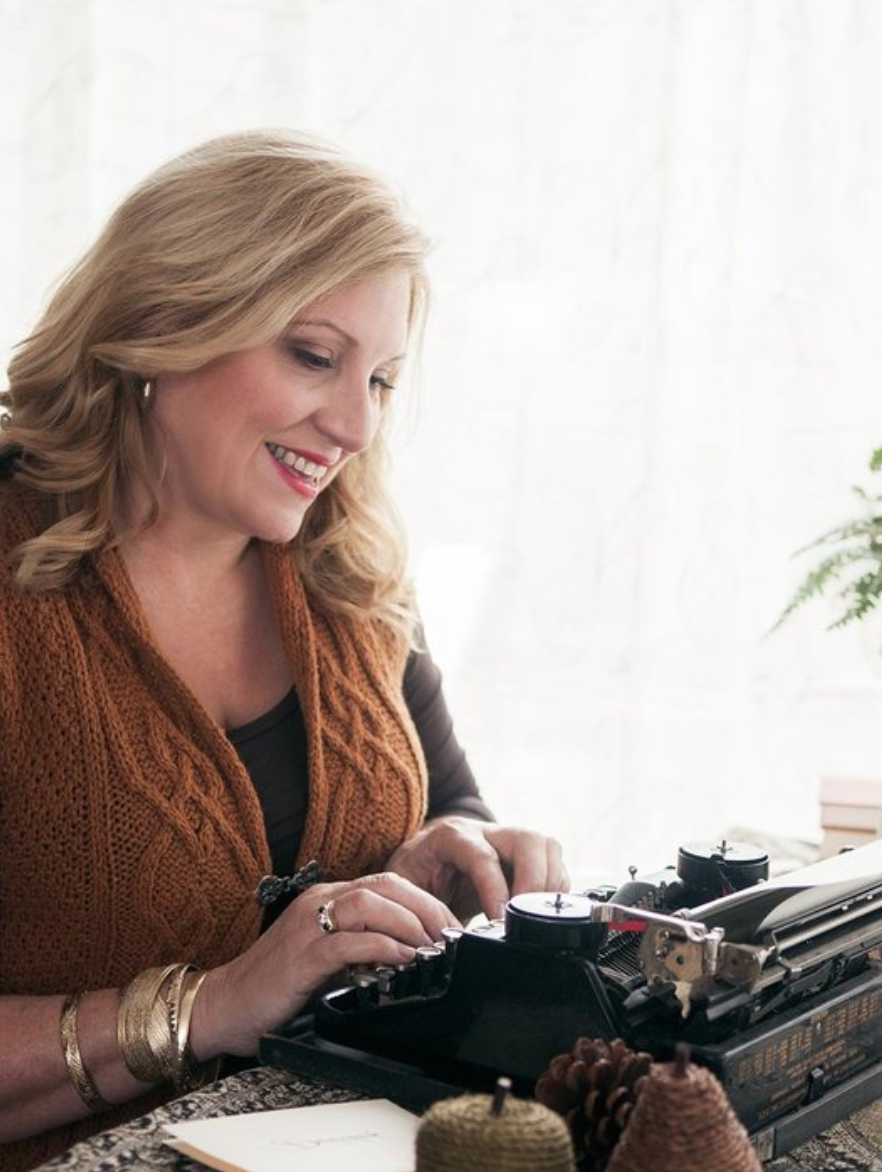 I was born with this voice. I had a very deep and unique voice when I was a small child.
I was born with this voice. I had a very deep and unique voice when I was a small child.
Years ago, a friend of mine named David Templeton, who is a fabulous musician, took me to the University of Washington, where he was a teacher, and they tested my voice. They recorded it, and they ran it through all these machines. And what they discovered is at the same level of volume as another person, my voice projects ten times as far. So I can be at the exact same volume level as the person next to me, and you could hear me a hundred feet away, where you could only hear them 10 feet away because the frequency that my voice projects. I take no credit for that. I didn’t make my voice. I didn’t give myself this voice box. That was a gift from God.
I got into broadcasting as a teenager because two men in my little town, Reedsport, Oregon—and I talk about this a lot in the book, One Heart at the Time—these two men, Steve and Jerome, heard me in a speech contest and opened the door for me to be able to go to the radio station.
I started this show, growing this show, in 1984 in Seattle, Washington. My son was just 18 days old, and I approached my program director—a woman named Chris—and I said, “I want to try something different. These people are calling me all night long to request songs. But the reason they want to request the song is not because the song is popular, but because it has meaning to them.”
A lot of people think that that people call DJs to request songs because they like that new song, the new hit song by whoever. That’s not the case most of the time. Unless you’re calling a Top 40 station and you’re 14 years old, most adults who request a specific song want to hear it because it lyrically speaks to their heart, and it brings back a memory or it evokes an emotion of a particular time in their life. Those are the best stories!
And I said, “Chris, can I please try this?” She gave me the green light and said yes, and the rest is history. It’s just grown and evolved and matured over the years.
I can take very little credit for anything success wise in my life. I can’t take any credit for the doors that opened for me. Really the only thing I can take credit for is if you knock me down, I will get back up.
I’ve been fired a lot in my career. But when you fire me or when you tell me I can’t do something, it’s not going to stop me. It’s not even going to slow me down. You’re actually doing me a huge favor, because it’s like—you know those bellows you use when you were in scouting and they taught you how to blow on the fire, fan the flames, give it oxygen? When somebody tries to stop me, it’s like the bellows on the fire. All you’re doing is fueling the fire. You’re not going to stop me at all.
So if you really listen to the show and you hear me interact with my callers, you’ll notice I’m not really much of a counselor. I’m not giving advice, unless you write to me for a Delilah Dilemma, in which case you present your dilemma and I give you my best take on it. But most of what I do when I’m talking with a listener is I listen. And I try to listen to what they’re not saying because that’s the real story.
“I try to listen to what they’re not saying because that’s the real story.” – Delilah
When you can hear somebody’s timbre change in their voice, when you could hear the emotion in their voice, you’re getting the truth of who they are or what their narrative is, their story. And that’s where the magic happens. That’s where the miracles happen. That’s where people get vulnerable. You see into their heart. And when you see into somebody’s heart and they allow you to see their vulnerable self, hear their vulnerable story, that’s where intimacy happens.
If you cut up the word intimacy into “into me see,” what you’re saying is, “I’m inviting you to see the truth of who I am.” Intimacy. And that’s what my show is all about, allowing people to be honest and vulnerable. And then I try to match up the perfect song with their narrative, with their story.
The Joys and Sorrows of Opening Your Heart
Narrator: Delilah uses her gifts and talents to reach people in their vulnerability, and her compassion comes from a place of personal vulnerability. Known for her generous heart and spirit, Delilah has opened her home to children, and has experienced many joys as a parent. But she’s also faced the unthinkable: the tragic loss of her sons, Zack and Sammy.
Delilah: I love people. I especially love young people. God has blessed me with resources that most people don’t have, and so I share those resources with children who otherwise wouldn’t have a forever family.
It’s important to talk about losing Zack and my son Sammy, number one, because I want to keep their legacies alive. Their bodies have gone. They’re no longer here, but their legacy of love is something that I want to live on forever.
Especially, especially Sammy, my son that I lost in 2012, because he was spent his entire life in an orphanage. And his greatest fear was that he was going to die in that orphanage and not a single person would ever remember that he had ever been born. That was his biggest fear.
“[Sammy’s] greatest fear was that he was going to die in that orphanage and not a single person would ever remember that he had ever been born.” – Delilah
He shared that with me the night that his adoption was finalized. He was just bawling and I said, “Son, I’m sorry. Why are you sad?”
And he said, “Mom, I’m not sad. I was so afraid. I was going to die and no one would ever even know or care that I was born.”
I said, “I promise you, Sammy. A lot of people will know you.”
And at the time, I knew he would die prematurely. He was very sick. I thought he’d make it to 30, 40, 50 years old. I didn’t know that our time with him was going to be so short.
With Zack, that was so unexpected and so gut wrenching in every way.
My son had come to us 10 months before and said, “I’m depressed. I need help.” He actively was involved in his mental health. He didn’t go on our family vacation for the first time in his whole life, because he didn’t want to miss his counseling appointments. He was that engaged in that involved in his mental health. He went to his counselor every week. If he couldn’t get to her in person, he Skype’d her. He didn’t miss a single session.
What Zack did is, he made a really bad choice because he was on a medication that made him delusional.
Suicidal ideation, homicidal ideation, and delusions are the three big problems with the young people under 25 are on antidepressants. And nobody had ever mentioned that to me.
So I want parents number one to be aware if your child is on this medication, they can’t go off of it. They have to go down very slowly over weeks or months.
You don’t ever move on when you lose a child. When you lose a parent, you move on. You miss them you mourn them you grieve them, but that’s the natural order of things. Grandparents are supposed to pass. Parents are supposed to pass. You’re supposed to grow old, and that’s the way we think it’s supposed to work. We never think, I’m going to outlive the baby I gave birth to or the child that I adopted.
“You don’t ever move on when you lose a child.” – Delilah
So what I’ve learned—I saw this cool illustration on social media, and it showed the grief how when you suffer a loss, it takes over your whole being. You can’t eat, you can’t sleep, you can’t function as a normal human being because every cell of your body, every thought in your mind is encased or is surrounded, flooded with grief like a tidal wave a tsunami. But as time goes on, your world starts to expand around the grief. The grief doesn’t shrink. The sadness doesn’t shrink. I don’t miss my boys any less today than the day they left me. I miss them more. I miss where they should be today. So the grief doesn’t shrink. The memories don’t shrink. The pain doesn’t shrink, but your world grows around it. Your world expands around to include it.
“The grief doesn’t shrink. The sadness doesn’t shrink. I don’t miss my boys any less today than the day they left me. I miss them more. I miss where they should be today. So the grief doesn’t shrink. The memories don’t shrink. The pain doesn’t shrink, but your world grows around it. Your world expands around to include it.” – Delilah
Reaching Others One Heart at a Time
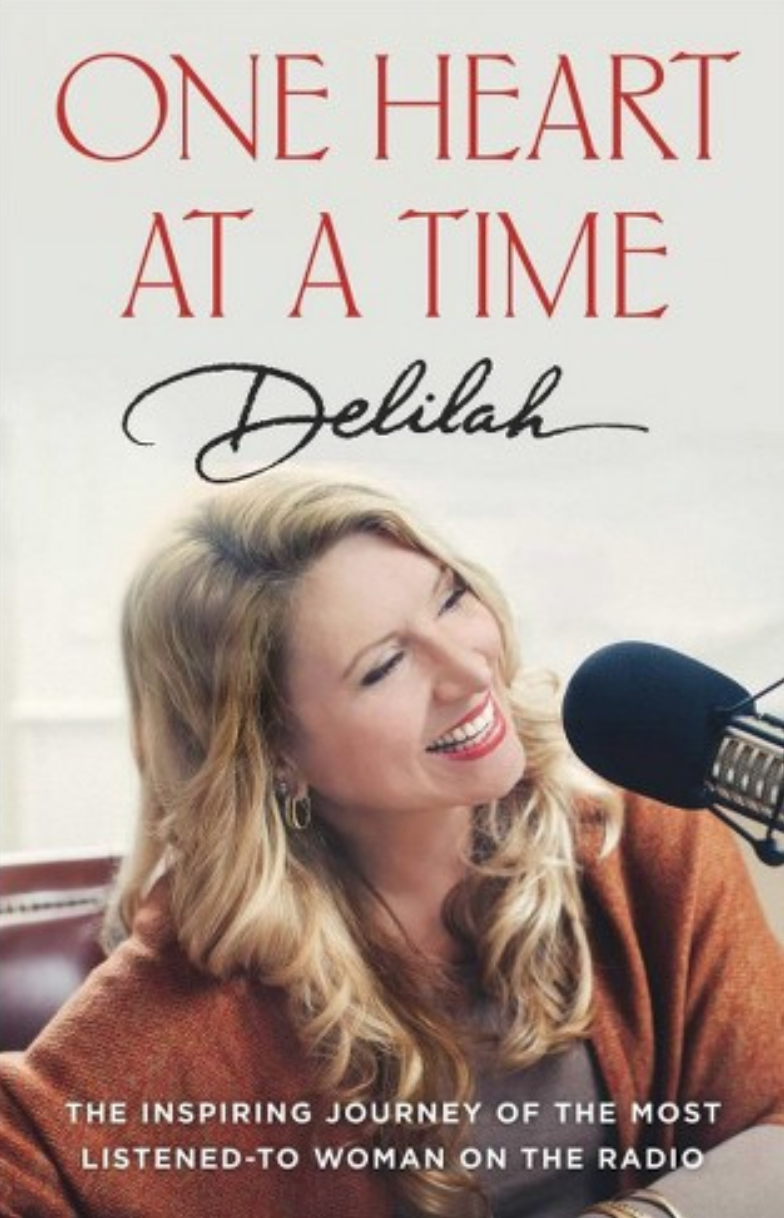 The reason that I wrote One Heart at a Time and what I hope people get out of it is I want people to look inside their heart, to look inside their life, to really look at themselves and say, “What are my gifts? What are my talents? What are my passions? And then how can I use that thing whether that thing is writing a song or being an engineer. Maybe you thrill at the thought of adding up a column of numbers. How can you use that gift to make the world a better place?”
The reason that I wrote One Heart at a Time and what I hope people get out of it is I want people to look inside their heart, to look inside their life, to really look at themselves and say, “What are my gifts? What are my talents? What are my passions? And then how can I use that thing whether that thing is writing a song or being an engineer. Maybe you thrill at the thought of adding up a column of numbers. How can you use that gift to make the world a better place?”
How can you use your gift, whatever that is, to impact your world one heart at a time, with a goal in mind to make this world a better place for myself and for the next generation?
That’s what I hope they get.
Narrator: To learn more about Delilah’s new book, One Heart at a Time, visit delilah.com.
Narrator: Stay tuned for our chat with author Gary Thomas after a brief message about a beautiful new edition of Jesus Calling!
Narrator: Are you looking to introduce a friend or loved one to the peace that can be found by spending time with God daily? There’s a beautiful new edition of Jesus Calling that makes a gorgeous gift for someone who might be seeking a new perspective for a new year. It’s the same Jesus Calling daily devotional that has inspired over 25 million readers, now updated with a lovely fabric cover and eye-catching foil with feminine floral touches. This elegant new version also features large text and written-out scripture verses with each passage.
For more information about this stunning new edition of Jesus Calling, visit JesusCalling.com/Botanical. That’s JesusCalling.com/botanical. Now, let’s get back to the second half of our program.
Narrator: Our next guest is author and pastor Gary Thomas. Gary is a teaching pastor who often counsels couples before their wedding day. Gary has spent many years trying to connect men and women to God and to each other, and this journey has led to his latest book Preparing Your Heart for Marriage: Devotions for Engaged Couples. Today he shares insights for couples looking to begin their marriages with God at the center, and tells us about the surprising blessings of Gary’s own stage of marriage: empty nester.
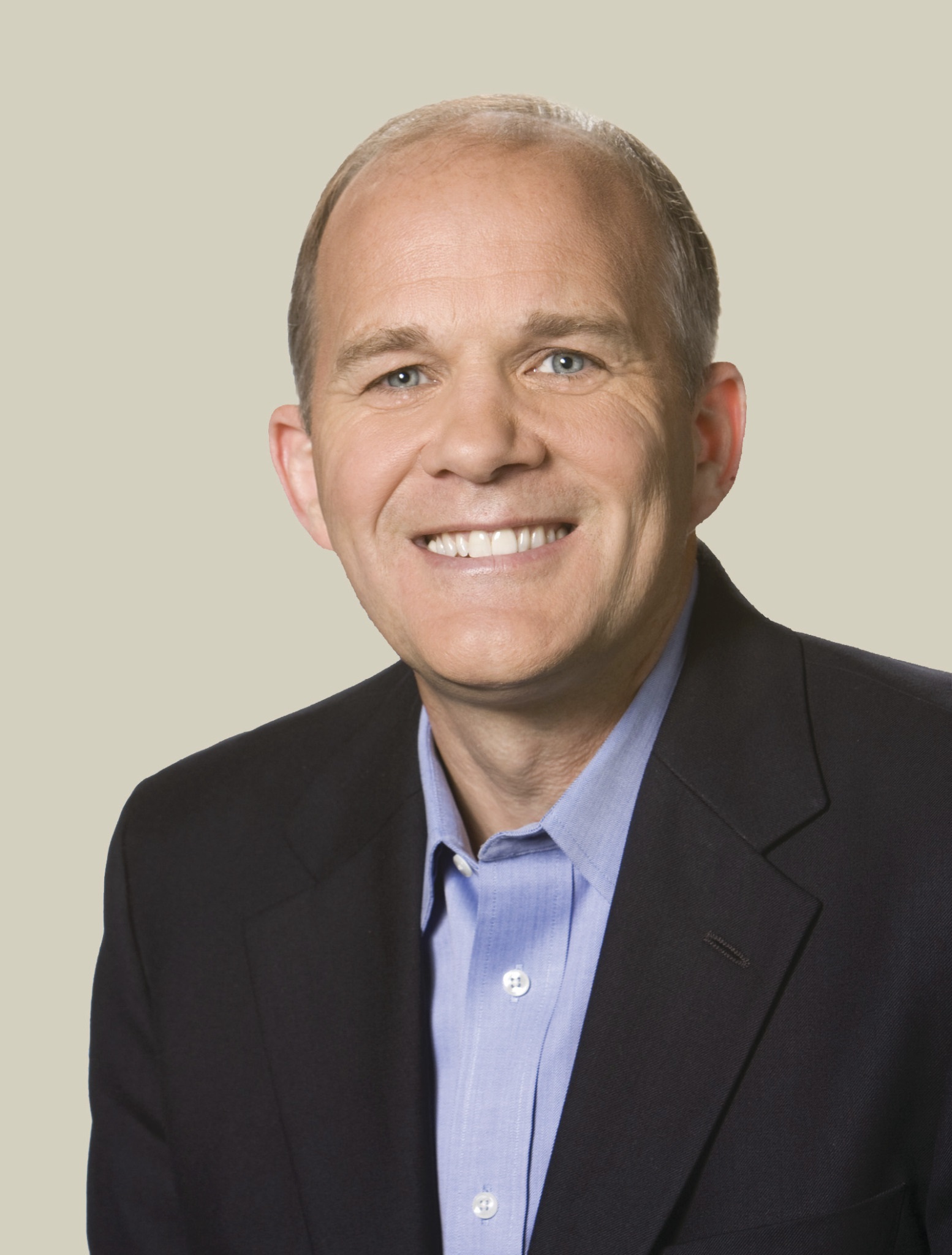 Gary Thomas: My name’s Gary Thomas. For the past couple decades, I’ve been writing books primarily on marriage, also on spiritual growth. I do a lot of premarital counseling, working with marital couples, working with marriage conferences. And then just preaching general sermons here in Houston.
Gary Thomas: My name’s Gary Thomas. For the past couple decades, I’ve been writing books primarily on marriage, also on spiritual growth. I do a lot of premarital counseling, working with marital couples, working with marriage conferences. And then just preaching general sermons here in Houston.
I’m a Seattle boy and grew up in a little town called Puyallup, which is right between Seattle and Tacoma. I always wanted to be a writer, to be honest. People say, “When did you know?” I’m remarkably limited in my skill set. There’s just not much I can do well that anybody would pay me for.
I had a wonderful seminary professor who just believed in me. And before I even told him I wanted to be a writer, he talked about me as a writer, which really surprised me and just encouraged me, because I knew he heard from the Lord. I knew he was spiritually alive, and I thought, Well, I’ll just take that.
The writing thing worked out so that I was able to support my family, and I really just love what I do.
Growing Together into a Sacred Marriage
I got married ridiculously young. I was 22. My wife, she turned 20 just a few weeks later, but she was actually still a teenager.
But part of the blessing of that is that literally we have almost grown up together. But I think because of my immaturity, it was difficult at the start. Our first year was the most difficult year of our marriage, perhaps. There were one or a few in there as well. But we were both Christians, committed to making this work.
“We were both Christians, committed to making this [marriage] work.” – Gary Thomas
I found myself being challenged in the areas of pride and selfishness, how to become more gentle, even things like courage speaking up through being married in ways I’d never been challenged [when I was] single. And I didn’t see anything out there [to help me], so I wrote Sacred Marriage. I really took it as an approach of, What if God designed marriage to make us holy more than to make us happy? Not instead of happy, but just really seeing how God could use marriage to really help us grow. And that just kind of caught on.
“What if God designed marriage to make us holy more than to make us happy?” – Gary Thomas
When the book first came out, people would come up to me and to Lisa and say, “I just can’t believe how vulnerable you guys were. Thank you so much. We so appreciate you.” I wasn’t writing it as, “Here’s the answers.” A lot of it was just, “Here’s where I blew it,” and I did. And listen, I got scared after a while. We got to go back and read that book and what we said, and it didn’t seem all that vulnerable to us. But I do think, again, this is going back to the 90s where there’s this sense of Christians weren’t supposed to admit real challenges in their marriage.
It was a difficult season of our marriage [when] that book came out. And I think it came out in 2000. I was married in ‘84, so it’s like 16 years later. That probably means it was written 14 or 15 years after being married. So I think it resonated with readers. But marriage does have seasons, and it’s kind of funny how you can kind of look back at these books and see where my wife and I were at any given time.
How to Know Your Spouse Before the Wedding Day
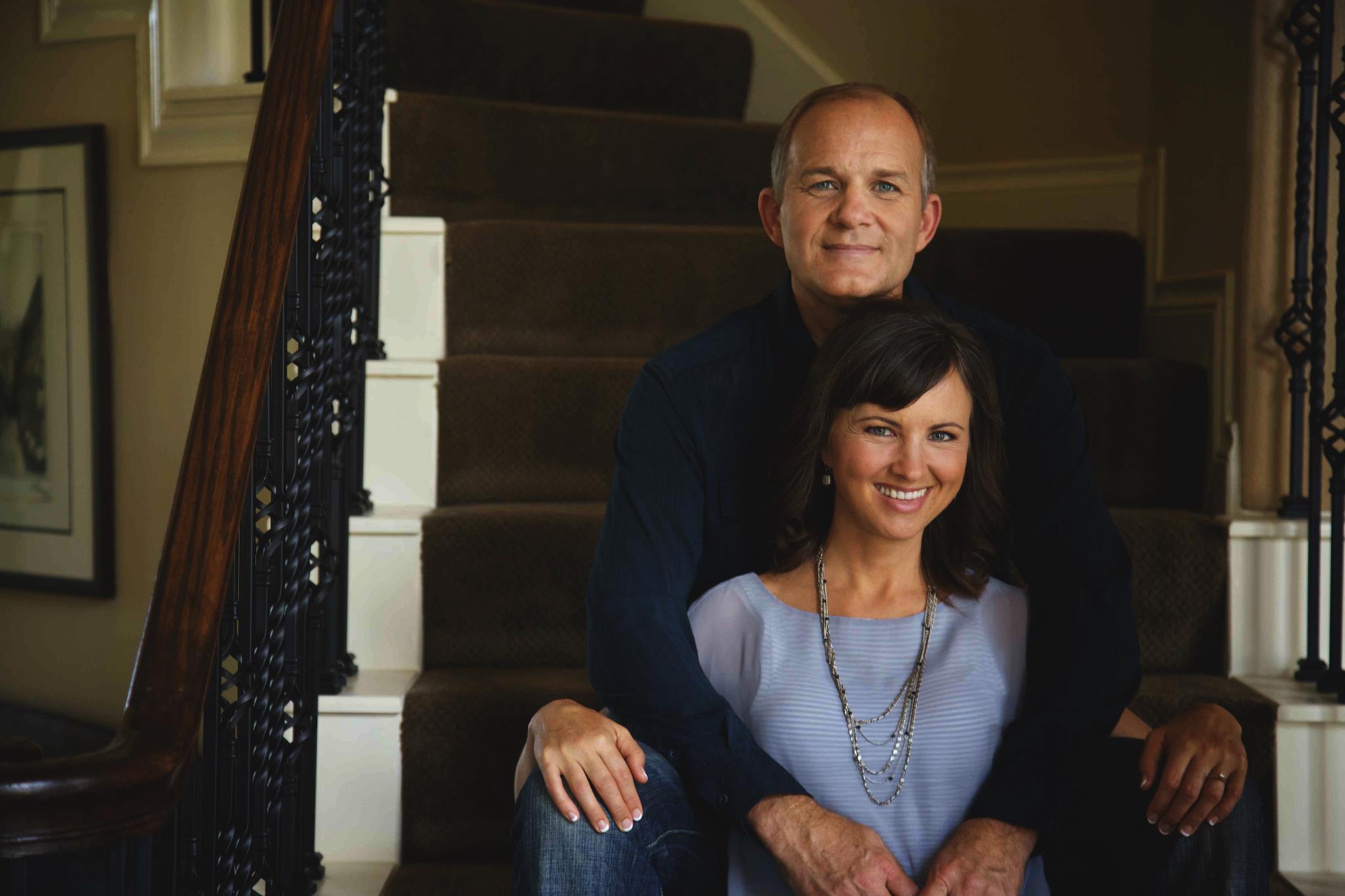 Lisa and I were blessed. We were in a college ministry with a campus pastor who took premarital counseling very seriously. So we went through a rigorous program. In the churchwide environment, I saw that a lot of people don’t get that at all. You know, some meet with the pastor one time, and it’s basically to plan the ceremony.
Lisa and I were blessed. We were in a college ministry with a campus pastor who took premarital counseling very seriously. So we went through a rigorous program. In the churchwide environment, I saw that a lot of people don’t get that at all. You know, some meet with the pastor one time, and it’s basically to plan the ceremony.
So when I started doing premarital counseling, I was pretty honest with couples, saying, “There are easier ways to get married. But if you want me to do the wedding, we’re gonna be getting together about 12 times. Might be more than that. I’m going to try to pull you apart at the start. We’re going to poke into all areas.” They’re going to ask for absolute honesty. They know it’s serious when I say, “You’re both going to have to get a credit report and share it with each other. And I don’t want you to not know anything about each other, because this is a huge decision. And I want you to go into it with your eyes wide open. And if you’re scared about sharing your credit report, that tells me something else about what’s what’s going on.”
Some say, “You know what? We don’t really want that. we’re happy to talk about the ceremony.” But most of them say, “That’s exactly what we’re looking for.” I would rather heavily invest in a few marriages a year than sort of do the drive-by weddings of dozens of couples in a year.
Taking Marriage Vows Deeper at Every Stage
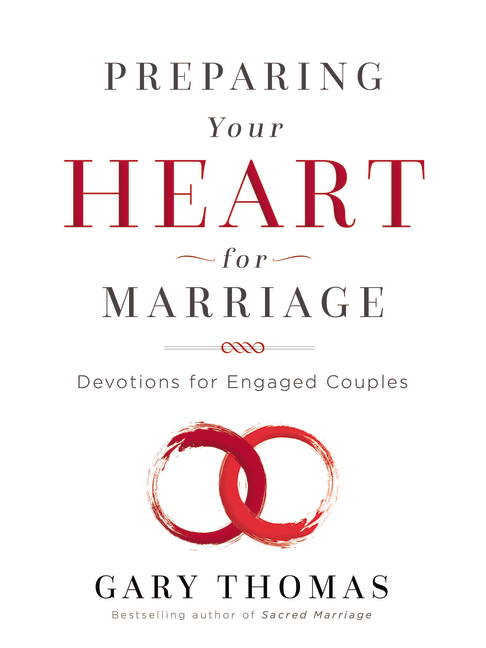 I wrote Preparing Your Heart for Marriage: Devotions for Engaged Couples in part because it provides a lot of the issues that I’ll talk to engaged couples about before they get married. But the second half is what really got me excited to do it.
I wrote Preparing Your Heart for Marriage: Devotions for Engaged Couples in part because it provides a lot of the issues that I’ll talk to engaged couples about before they get married. But the second half is what really got me excited to do it.
Wedding ceremonies are so quick. And there’s so much going up to them, and the anxiety and all the things that you’re thinking ahead of time, you’re saying these incredible vows that are powerful that just humble me, that two people are promising just immense things to each other, and yet we often don’t take them as seriously as we should.
And so the second half of the book goes through the vows and the statement of intent phrase by phrase. So that when a couple is reciting those vows they’ve talked about each word. They’ve prayed about it. They’ve discussed. They’ve studied it. They read it. “This is what it means. This is what I’m promising you to do.”
Now, I know not every couple will choose to use a traditional statement of intent and traditional vows, but they’re powerful enough to know that’s sort of what we’re agreed to when we’re married. [The book is] really just designed not just to prepare them for marriage, but to make that wedding day all the more special. I couldn’t find another book that did that, that based the devotions on the vows they’re about to make.
 And then with some married couples, they just said, “Hey, we made those vows but we never really thought about it. So it’ll be kind of fun to go back and just look at what we promised to do and see how we’re doing.”
And then with some married couples, they just said, “Hey, we made those vows but we never really thought about it. So it’ll be kind of fun to go back and just look at what we promised to do and see how we’re doing.”
I’ve been pleasantly surprised at how wonderful parts of [marriage are in] the empty nest years. We never were the couple that were looking forward to becoming empty nesters—we loved active parenting. We were mourning it long before it happened. We liked having the kids around. We wish we could have had more kids—we had three.
But once it happened, just a lot of things surprised me.
It’s just so hard when the kids are young, and you’re self-employed, and you’re not on a salary, and so your income can be directly tied to what you’re producing. And that was just gone. Now the kids are out of the house, and if Lisa’s good with it, I can pull a 12 or 15-hour day if I have to for something without feeling that tension of, I’ve got to get home, I’ve got to get home. Now, Lisa wouldn’t like it if I did that every day, but she knows are going to be some days and she’s off doing her own thing.
I love that Lisa now travels with me probably 80, 85 percent of the time. It’s just fun now because I traveled alone for so much of our married life. Now I rarely do, and that’s been fun.
For us, the empty nest years have been a wonderful time of discovering we can focus on each other in a way that we just couldn’t before. We have more time. Money isn’t as tight, so we have just a lot less worry. It’s been, frankly, a really good season of marriage.
There’s no perfect person out there to be found, so that means every marriage is going to be difficult in a particular way.
At a conference—this was a large conference. We had 500 couples there, a thousand people. I said, “I want you all to stand up.” They all stood up.
I said, “I want you to remain standing if your marriage proved to be easier than you thought it would be.”
Five couples remained standing. Out of 500. Now, I’m an English major, but I can do that math. That’s 1 percent.
And so it’s just admitting that’s a spiritual difficulty. But here’s what overcomes it: when I love my wife out of reverence for God, I’m going to treat her based on my reverence for a perfect God who always deserves to be reverenced.
“When I love my wife out of reverence for God, I’m going to treat her based on my reverence for a perfect God who always deserves to be reverenced.” – Gary Thomas
And so when He comes to me and says, “Okay, Gary, this is my daughter. Will you love her for me, regardless of who she is?” Because of everything else he’s given me, I’m motivated to treat her well. Doing that lifted my marriage to a whole new place.
Narrator: You can find Gary’s book Preparing Your Heart for Marriage at your favorite book retailer today.
Narrator: Next time on the Jesus Calling Podcast, we talk with the authors of Praying Circles Around Your Marriage Joel and Nina Schmidgall. Joel and Nina are passionate about helping other couples thrive in their relationships, and share a healthier way they learned how to navigate conflict in their own marriage.
Nina Schmidgall: There’s a lot of things that we kind of suggest that you can put in place in your marriage that will help them navigate the waters for they get to a place of at least unhealthy conflict.
So we encourage things like a regular . . . for us it was a Sunday night walk. I think for Joel, knowing that that was on the calendar, he was able to kind of be mentally prepared for more intentional conversation. And for me, those things were able to be addressed when they weren’t in the heat of moment or frustration.
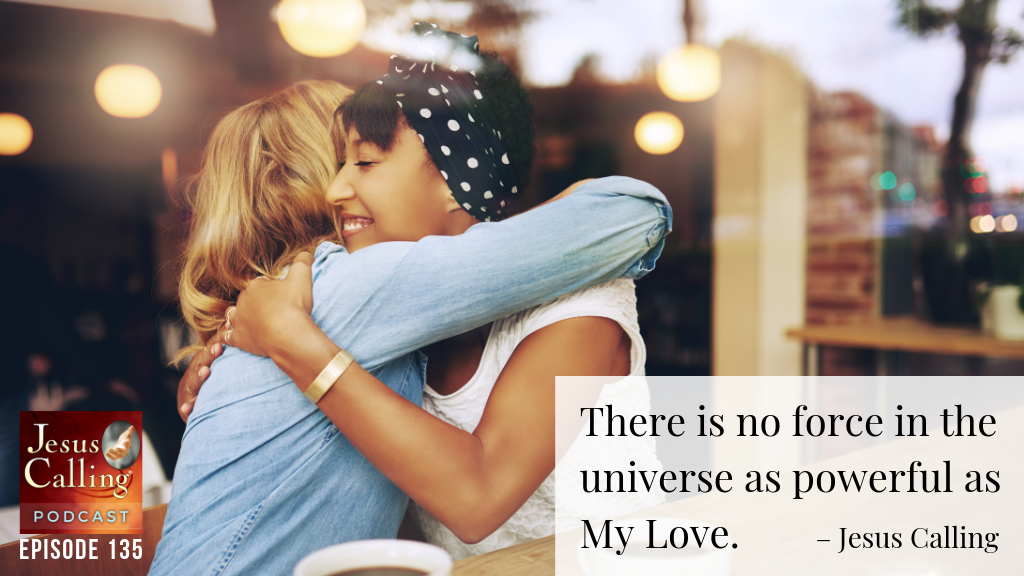
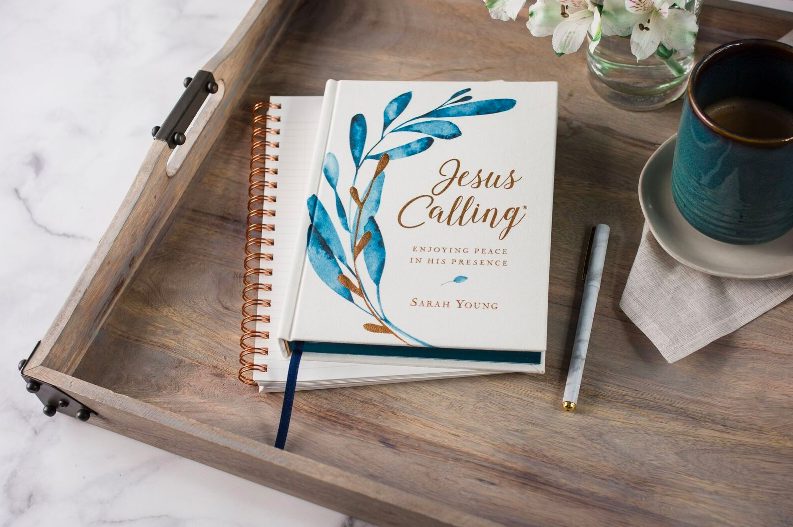


Thank you Delilah…for sharing from your ❤heart and sharing how Lord has blessed you through JESUS CALLING.
The Lord uses each of us as we grow in His grace and find our place on this terraferma.
Your testimony spoke to my heart.
I totally get what you’ve shared.
Our voice is such a gift from God.
God Bless you…you have blessed my heart and life…Ephesians 3:16-19